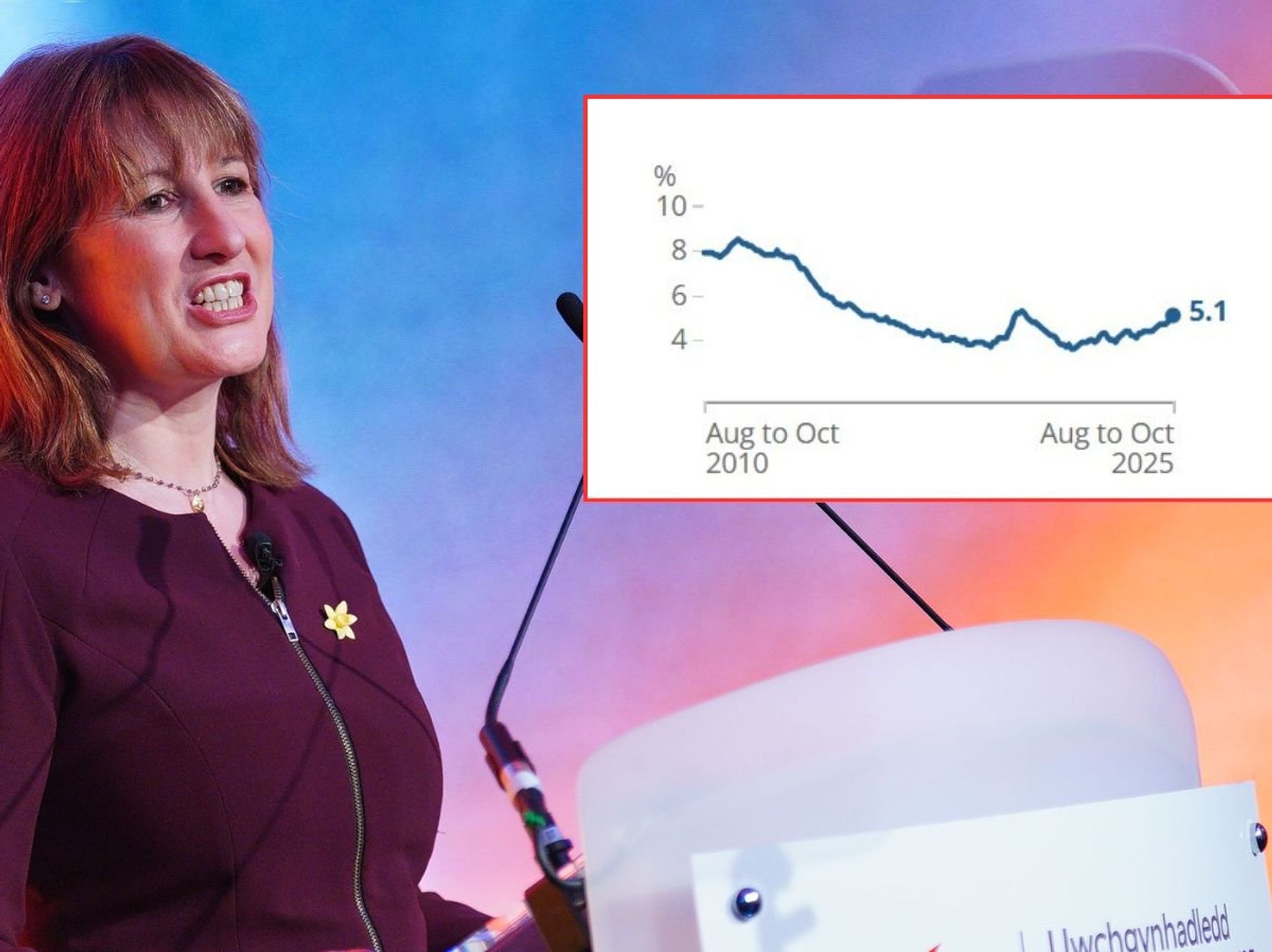Doctor Q&A: What is the best snack for lowering blood sugar? Dr Renee Hoenderkamp answers your burning health questions

Celebrity NHS doctor Renée Hoenderkamp addresses GB News members' burning questions
|Doctor Renée Hoenderkamp

In this week's Q&A, celebrity NHS Doctor Renée Hoenderkamp addresses the best snack for lowering blood sugar, a healthier alternative to warfarin and everything you need to know about Crohn's disease
Don't Miss
Most Read
Latest
Your body is a lot like a car: it needs servicing every so often.
Thankfully, you can soup up the engine no matter how many miles you have racked up on the road.
Celebrity NHS Doctor Renée Hoenderkamp makes this clear in responding to the questions submitted to health@gbnews.uk this week.
In this week's Q&A, she addresses the best snack for lowering blood sugar, the best alternative to warfarin and unknowns about Crohn's disease.
Last week, our resident doc shed light on the relationship between vitamin E supplementation and cancer risk, how to put type 2 diabetes into remission and the best exercise for easing back pain.
It's important to remember that the advice given below is general and not individual and you should always seek individualised health care from a doctor.
With those caveats aside, see below Doctor Hoenderkamp's answer's to GB News members' burning questions.
My wife had blood clot to brain and is now on blood thinners. What is a more healthy way of thinning blood than warfarin and will a D-Dimer test be of any use?
A blood clot anywhere in the body is a problem as it deprives surrounding tissue of oxygen causing damage and the longer it persists the more damage is done. This is particularly critical in the brain as damage to the brain can have long-lasting and debilitating effects on anything from speech to limb control. A blood clot in the brain is called an ischaemic stroke. Once you have had a blood clot in the brain, like your wife, lifelong anti-platelet or anti-coagulation is necessary and the traditional anti coagulant used for this is warfarin.
These medicines can reduce the risk of another stroke/blood clot.
There are several types of anticoagulants medication that work in different ways. In addition to warfarin, there are newer medications called direct oral anti-coagulants (DOACs).
Your wife will have been offered warfarin hopefully having been assessed to work out which treatment was the best for her, taking into account;
- The type of stroke
- The cause of the stroke
- Other co-existing health conditions
- Other medication and any interactions
- Age
Having said this, warfarin requires much more monitoring than DOACs and needs more ongoing blood testing which some patients find very intrusive and difficult to manage.
When starting a DOAC your doctor will check how well your kidneys and liver are working and will then retest three months after starting and then once a year which for most people is more acceptable. So you could discuss these medications with your wife’s doctor and the medications in question are called rivaroxaban (Xarelto), dabigatran (Pradaxa), apixaban (Eliquis) and edoxaban (Lixiana).
So this is one option for your wife and I would encourage you to have the conversation with her specialist.
In terms of your question regarding D-Dimer tests, this is not useful in prevention of another blood clot, only in identifying one when it is present.
I hope that this helps and good luck!
Hello, what is the best snack in the morning for lowering blood sugar? My levels tend to spike first thing and I struggle to bring them down. Thank you
This is interesting but also tricky as you don’t say that you are diabetic but for this answer I am going to assume the answer is yes as it would be unusual to be checking blood sugars if not!
Some people with diabetes do suffer what is known as the ‘Dawn phenomenon’ which leads to high levels of blood sugar (hyperglycaemia) in the morning, usually between 4-8am.
The cause isn't clear. Some hypothesise that the overnight release of certain hormones that happens naturally increases insulin resistance which causes blood sugar to rise. These hormones include growth hormone, cortisol, glucagon and epinephrine and they oppose the effect of insulin, which in people with diabetes is already being produced poorly and not working effectively on cells
High blood sugar in the morning may be caused by:
- Insulin dose being too low the night before.
- Incorrect dose of diabetes medicine the night before.
- Snacking on carbohydrates at bedtime.
What can you do?
You can try and help things by:
- Avoiding carbohydrates at bedtime.
- Altering your dose of diabetes medicine or insulin.
- Switching to a different medicine for your diabetes.
- Taking your medication or insulin at bedtime instead of dinnertime.
- Switch to an insulin pump to give you extra insulin during early-morning hours
All of these should be done in consultation with your doctor.
In the meantime you could try a morning meal of nuts, seeds, yoghurts to try and lower your glucose spike but if it has already risen then its likely too late and the trick will be in preventing the spike. There is some good advice on ZOE.
I hope that this helps.
My son has just been diagnosed with Crohn's Disease. I had never heard of it, what is it?
I am sorry to hear this. Crohn's disease is an inflammatory bowel disease which can result in inflammation of the digestive tract, abdominal pain, diarrhoea, fatigue, weight loss and malabsorption. It can affect any part of the digestive tract from the mouth to the anus but commonly affects the small intestine.
It varies from person to person and can be painful and debilitating, sometimes leading to life-threatening complications.
Typical symptoms can include;
- Diarrhoea
- Fatigue
- Fever
- Blood in your poo
- Abdominal pain and cramping
- Mouth ulcers
- Reduced appetite
- Weight loss
- Pain around the anus that can cause fistula’s (a tunnel of skin that leaks fluid)
Other signs and symptoms can involve the eyes, skin, joints, liver and kidney and it can cause anaemia and in children delayed growth or sexual development.
We don’t know the exact cause of Crohn's disease but there is likely a hereditary pattern, it can run in families, and we know that something causes your own immune system to attack itself but a trigger, eg a virus, has not been proven yet.
Risks
- Family history. If you have a first-degree relative (parent, sibling, child), with the disease. 1 in 5 people with Crohn's disease has a family member with the disease.
- Age. Most people are diagnosed before they're 30 years old but it can occur at any age.
- Ethnicity. Any ethnic group can be affected but white people are at highest risk, especially people of Eastern European (Ashkenazi) Jewish descent.
- Cigarette smoking. The most important controllable risk factor for developing Crohn's disease. Smoking leads to more severe disease and a greater risk of needing surgery.
Complications
There are many complications of Crohn’s so the better controlled the more likely you are to avoid these. They can include:
- Ulcers
- Fistulas
- Bowel obstruction
- Anal Fissures
- Malnutrition
- Colon cancer
- Skin disorders
- Blood clots
Treatment
Sadly there is no cure for Crohns but there are ways to control symptoms and minimise flares.
- Corticosteroids – may work for some for short periods to dampen down inflammation.
- Immune system suppressors such as azathioprine, methotrexate.
- Biologics – eg infliximab
- Antibiotics for infection and to help fistulas heal
- Anti-diarrhoeal medications
- Pain relief
· Vitamins and supplements if malabsorption present There may also be a role for a good probiotic and Symprove have done trials with Kings college/UCH with some promise and there is no downside so I always recommend this for my patients.
The overall message is that things look a lot better for Crohn’s sufferers now with the development of biologics and immune suppressors and with careful work with your specialist your son should be able to lead a good life without too much interference from his disease.










